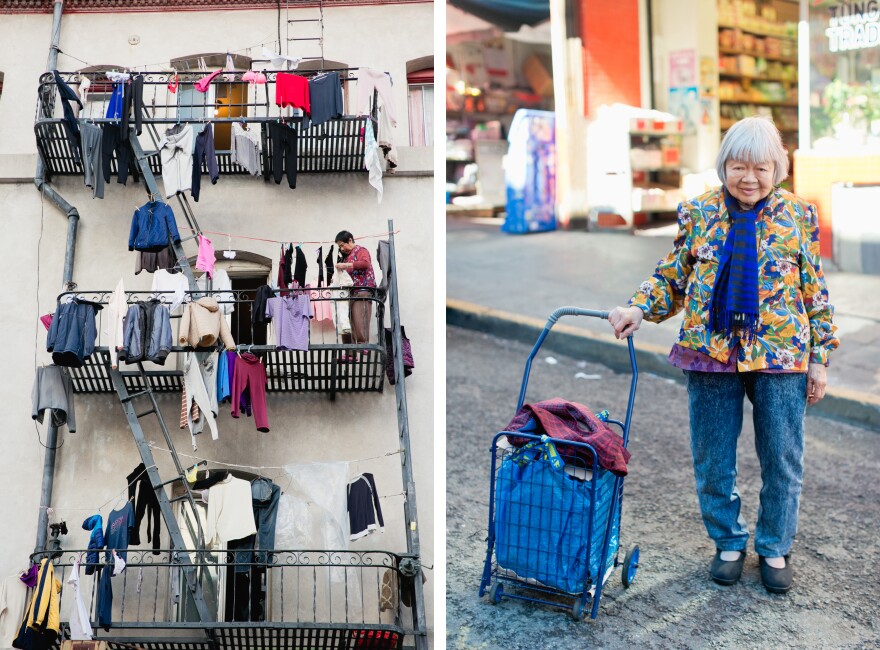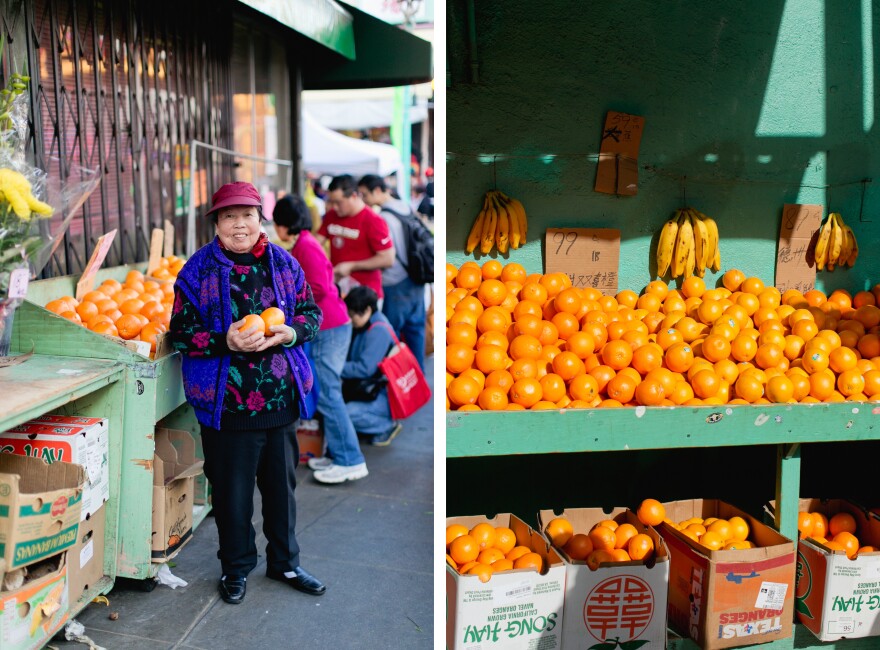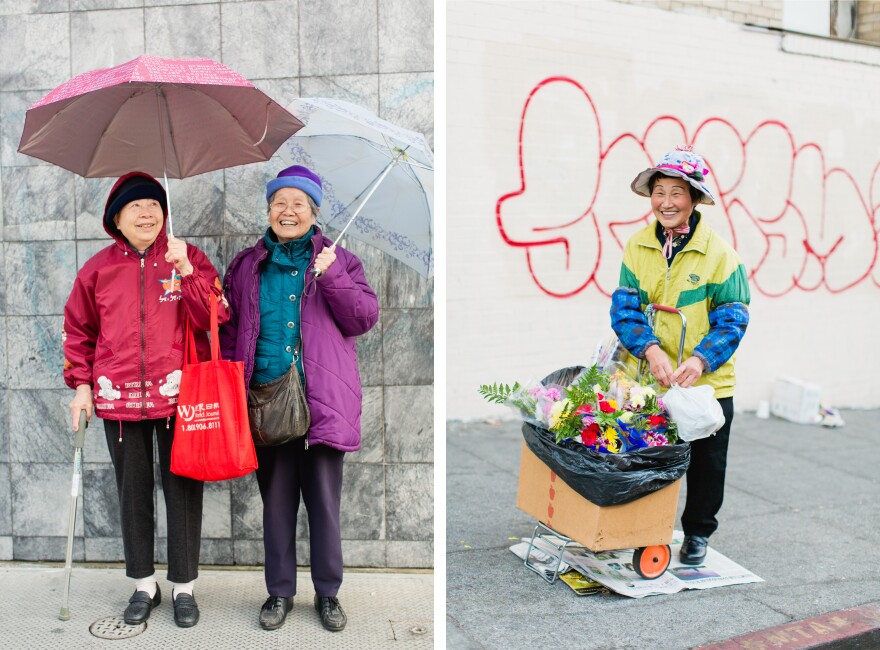In Chinatown Pretty, photographer Andria Lo and writer Valerie Luu document the vibrant street style of seniors in Chinatowns across North America.
The photos burst with color and swag. But the heart of the project goes beyond the sartorial: "The clothes serve as a gateway to their life histories," Luu says. "We interview them about what they did before retirement as well as their immigration journeys, which are often rife with taxing stories of work, war and loss. And now add to that, a global pandemic."
Amid the harrowing challenges posed by coronavirus — and a recent surge of anti-Asian hate crimes targeting the elderly — the images of Chinatown Pretty are a powerful, and often spirited, reminder of these seniors' joy and resilience.
"We see tender stitches keeping cardigan buttons in place, or two or three bags combined to maximize storage," Luu said of the portrait subjects' resourcefulness. "The DIY ethos is thickly woven into Chinatown seniors' approach to clothes and accessories."
NPR spoke to Luu and Lo about the project, which the duo started in 2014, and now includes interviews from more than 100 people from San Francisco, Oakland, Los Angeles, Chicago, New York and Vancouver. Their answers have been edited for length and clarity.

What was the inspiration for Chinatown Pretty?
When we went on dim sum dates in San Francisco's Chinatown, we noticed there was a distinct style among the seniors — patchworks of colors, patterns and textures that made for joyful and unexpected looks. Imagine your grandpa wearing a Supreme hat with a two-piece patterned set, silk scarf and the coolest Nikes. We wanted to understand how these people composed their outfits — and more importantly, where they got their shoes.
So it started out with wanting to know more about their clothes, but the project quickly evolved into a celebration of their lives.

Were there any particular challenges in photographing this demographic?
Our project captures the fashion of Chinatown seniors through street photography and on-the-street interviews. Therefore, it's very ephemeral. Sometimes we only get a chance to chat with them for a few minutes before they get on a bus or carry on with their errands for the day. Since Chinese seniors tend to be more private (and because they're probably caught off guard by people going nuts over their outfits), we have a 90% rejection rate.


I came across Chinatown Pretty for the first time this year and couldn't help but see it through the lens of the pandemic and other recent events, namely the attacks on Asian seniors across the country. Does this project carry a different weight for you now than when you first started?
This year has been hard for Chinatowns. The decline in business that started before the pandemic was exacerbated by the economic destruction caused by the virus — the quiet got quieter. Then, an increase in hate crimes, robberies and attacks on elders. Senior citizens, a driving force of Chinatown, have become less visible. In San Francisco, there aren't as many card and chess players in Portsmouth Square or regulars discussing the news while eating chicken rice at Dol Ho.
However, it's still possible to connect with older folks. We're finding new ways to give love to the Chinatown community — spending money at restaurants and shops, volunteering at food pantries, donating to causes like Feed + Fuel Chinatown, a pandemic initiative that provides hot meals to public housing residents while supporting local restaurants.
Chinatown is not just a tourist destination. It's a community of people. This project has always been about celebrating that and right now, there's a greater need to give it more love.

What do you hope will resonate with people the most?
To dress and live with abandon like the Chinatown seniors in the book. And to tell a grandma she looks pretty today.
Photographer Andria Lo and writer Valerie Luu are based in the San Francisco Bay Area. Their book "Chinatown Pretty" is out now.
Copyright 2023 NPR. To see more, visit https://www.npr.org.


